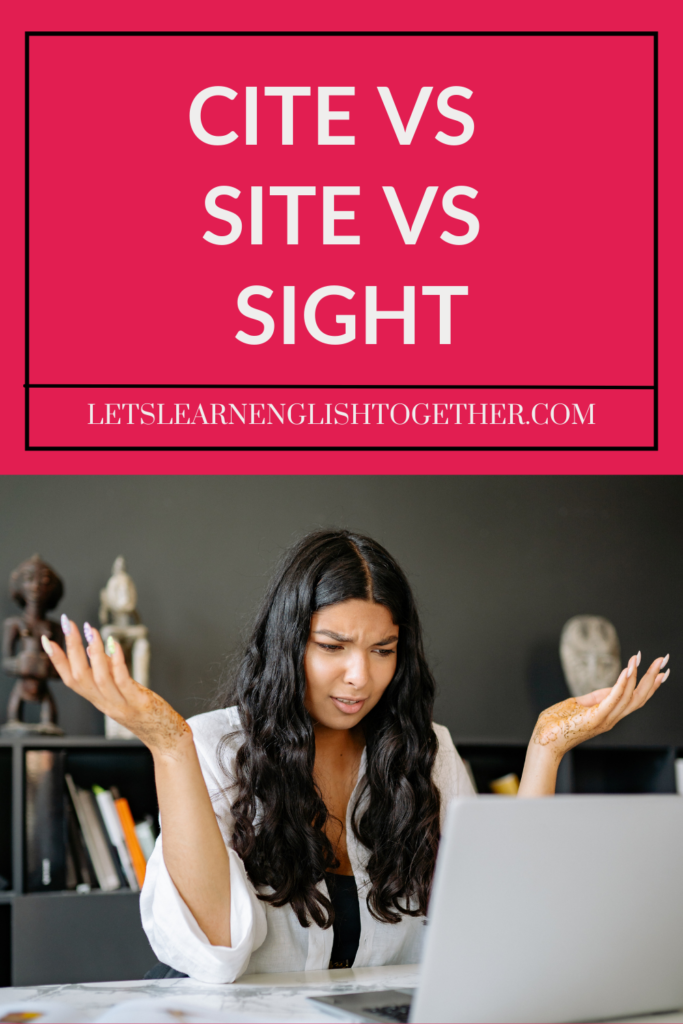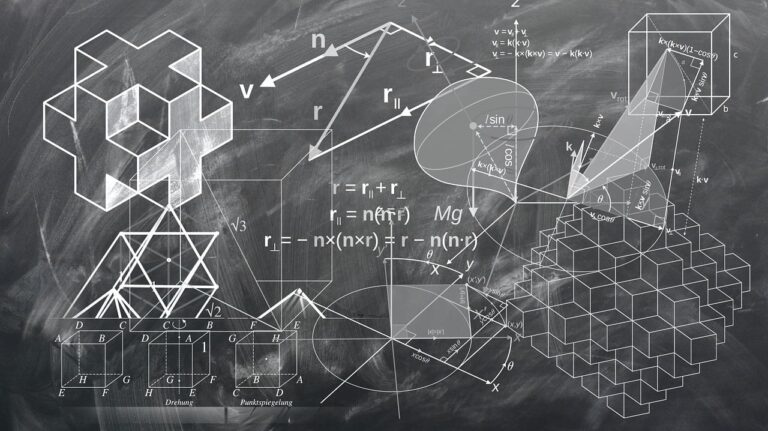Cite vs Site vs Sight: What’s the Difference?
This post may contain affiliate links. I may receive a commission for purchases made through these links at no additional cost to you.
Lots of people confuse cite, site, and sight! But they mean very different things. This guide explains when to use each word.
Key takeaways:
- “Cite” means to reference a source of information like a book, article, or expert. You use “cite” when quoting, summarizing, or sending people to a source to back up your points.
- “Site” refers to a location, either a physical place or a website.
- “Sight” relates to the ability to see or a view you can see.

Cite vs Site vs Sight: What Does “Cite” Mean?
The word “cite” means:
- To refer to a source of information like a book, article, or expert
- To give examples or proof for your claims
Here is when you use “cite”:
- Scholars cite sources in papers so people know where the proof comes from
- News articles cite expert interviews to back up their points
- Lawyers cite past court cases to make their argument stronger
So citing sources shows your work is factual and well-researched.
Using “Cite” in the Cite vs Site vs Sight Comparison
You use “cite” or “citing” when:
- Quoting a source word-for-word
- Summarizing ideas you learned
- Sending people to a source for more details
Some examples:
Smith’s bear book cites DNA tests linking brown and grizzly bears
Critics said the Senator’s plan has flaws, citing recent reports
See the original study for full methodology details
When citing, say exactly where your information is from so people can check it. You can cite:
- Research papers and articles
- Books and ebooks
- Websites and online sources
- Quotes from interviews and speeches
- Charts with data
- Legal papers
Citing properly makes your points stronger and shows quality research!
Cite vs Site vs Sight: What Does “Site” Mean?
The word “site” means:
- A location or place where something is
- A website or group of web pages
- An area of land ready for building
Here is how to use “site” correctly:
- They started building the new factory at the site near the highway
- Reddit is a very popular social media site
- Tourists visited historical sites all over the city
So “site” refers to a physical place or location, or an online location like a website. For example:
- This website features historic site profiles
- They checked the possible drilling site to see if the land was okay
- After the earthquake, crews checked building sites for safety
Remember: “Site” relates to an area or place, either a physical one or a digital one like a website.
Cite vs Site vs Sight: What Does “Sight” Mean?
The word “sight” means:
- The ability to see or sense of vision
- Something you can see like a view or scene
- Aiming equipment on a gun or device
Here’s how to use “sight” properly:
- As the plane lowered, the New York City skyline came into sight
- The baby’s laughter was a joyful sight for the happy parents
- Hunters use a rifle sight to improve their aim
- After surgery, her sight was mostly restored
Using “Sight” in the Cite vs Site vs Sight Context
You use “sight” when referring to:
- The ability to see
- Things that can be seen like views, landmarks, and scenes
- Gear used for aiming guns or tools
Examples:
The flower fields were a breathtaking sight
Tina looked down the bow sight as she pulled the arrow back
His worsening condition caused a gradual sight loss
Remember: “Sight” relates to seeing with your eyes or things that are visible.
Cite vs Site vs Sight: Proper Use Examples
Let’s clarify the difference with examples:
Cite:
- Researchers cited studies linking emissions and climate
- The lawyer cited legal cases backing their innocence claim
Site:
- The wind farm site covers over 40 acres
- Reddit remains a top social media site after 15 years
Sight:
- The Holland Tulip Gardens are a lovely spring sight
- Careful rifle sighting allows accuracy from 400+ yards away
Other similar-sounding words that people confuse:
So in summary:
- “Cite” means referring to written sources
- “Site” means a location
- “Sight” refers to literal or figurative vision
Keeping “sight” and “site” separate helps cite correctly. Now you can use all three words perfectly in the cite vs site vs sight context – cite sources, identify sites, and describe sights!





